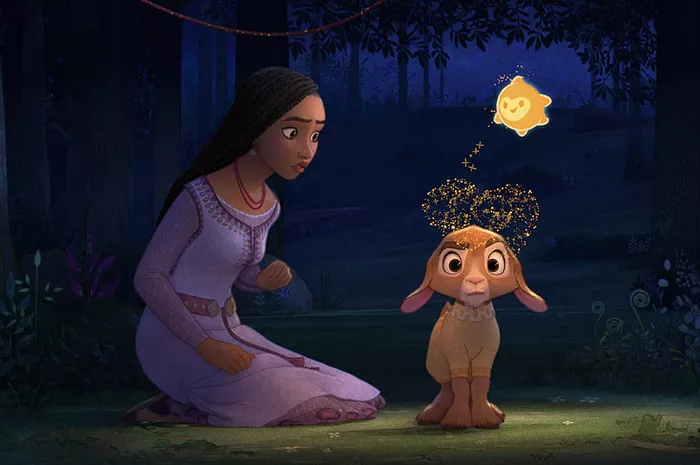In the realm of cinematic landscapes, few things are as polarizing as a Rotten Tomatoes score. For Wish, the latest offering fixated on an old Disney formula, the audience and critics seem to be engaged in a heated debate. The film has stirred up controversy, earning a divisive Rotten Tomatoes score that reflects the stark contrast between audience appreciation and critical skepticism.
1. Nostalgia or Laziness? The Disney Formula Debate
At the heart of the divide lies Wish’s fixation on an old Disney formula. While audiences appreciate the homage to classic fairy tales, critics are quick to label it as lazy writing. The tussle between those who relish the nostalgia and those who demand innovation sets the stage for Wish’s contentious standing.
2. Easter Eggs Galore: Fan Pleasure vs. Distracted Critics
A plethora of references to other Disney movies is one of Wish’s defining features. For fans, this serves as a delightful treasure trove, creating an interconnected Disney universe. However, critics argue that the abundance of Easter eggs distracts from the central plot and character development, turning what could be a coherent narrative into a collage of nostalgic nods.
3. Heavy Themes, Mixed Reception: Wish’s Exploration of Religion
Wish bravely ventures into the realm of heavy themes, exploring the intricate landscape of religion. While audiences applaud the film for its nuanced take and the messages it conveys, some critics see it as an outright attack on faith. The tension between those who appreciate the depth and those who perceive it as a controversial stance adds another layer to the film’s divisive nature.
4. Audience Praise: A Homage Done Right
Despite the critical scrutiny, Wish has found a loyal following among audiences who see the homage to the classic Disney formula as a homage done right. The film, for many, is a nostalgic journey that successfully captures the essence of beloved fairy tales, offering a comforting familiarity that resonates with the inner child in every viewer.
5. Critical Skepticism: The Call for Originality
On the flip side, critics argue that Wish’s reliance on the old Disney formula is a missed opportunity for originality. The demand for fresh narratives and innovative storytelling clashes with the film’s adherence to a tried-and-tested formula, sparking a debate on whether the homage is a genuine celebration or a lazy fallback.
6. Easter Egg Overload: Detracting from Plot and Characters
While Easter eggs can be a treat for fans, critics assert that Wish’s abundance of references becomes a distraction, diluting the focus on the central plot and character arcs. The delicate balance between pleasing the Disney enthusiasts and crafting a compelling standalone narrative seems to be where the film falters in the eyes of its critics.
7. Religious Discourse: A Fine Line Between Critique and Controversy
Wish’s exploration of religion walks a fine line, garnering praise for its thought-provoking approach from some quarters, while drawing criticism for its potential to offend from others. The film’s reception hinges on the audience’s willingness to engage with complex themes, making it a cinematic experience that sparks not just applause but also passionate debates.
Conclusion: Wish’s Duality and the Rotten Tomatoes Verdict
As the Rotten Tomatoes score reflects, Wish is a film of duality – a nostalgic journey that resonates with those seeking comfort in familiar storytelling tropes and a divisive narrative that draws criticism for its reliance on the past. The seven reasons behind Wish’s divisive score showcase the intricate web of opinions woven around the film, turning it into a cinematic conversation piece that will likely endure long after the credits roll. Whether it’s the clash between nostalgia and innovation, the debate over the role of Easter eggs, or the nuanced exploration of religion, Wish stands as a testament to the complex nature of filmmaking and the diverse perspectives it can evoke.

